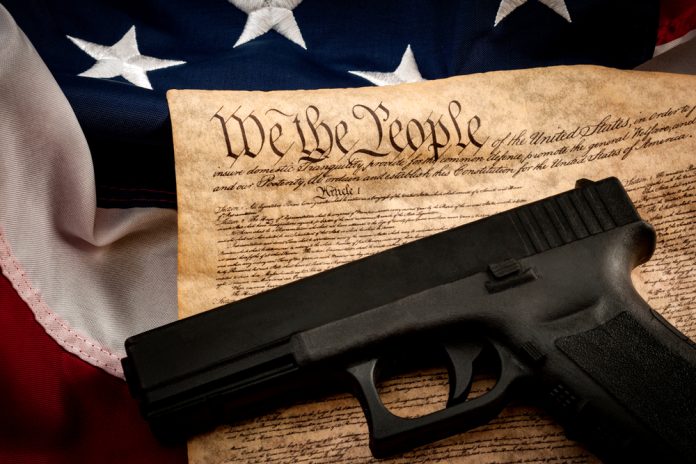
North Carolina’s legislature has passed a controversial bill abolishing concealed carry permit requirements, setting up a constitutional showdown with Democratic Governor Josh Stein who appears poised to veto the measure.
Key Takeaways
- North Carolina’s House passed Senate Bill 50, “Freedom to Carry NC,” allowing permitless concealed carry for citizens 18 and older, making it potentially the 30th state with constitutional carry.
- The bill eliminates requirements for firearms training, mental health record disclosure, and permit applications for concealed carry.
- Democratic Governor Josh Stein is expected to veto the legislation, setting up a potential override attempt by the Republican-controlled legislature.
- Opponents, including some gun range operators and law enforcement, warn the bill could increase public safety risks, while supporters argue it removes unnecessary government restrictions on Second Amendment rights.
- A Johns Hopkins University study found an 18.3% increase in gun assaults in states that relaxed similar gun laws, and 54% of North Carolinians oppose permitless concealed carry according to polling.
Constitutional Rights vs. Public Safety Concerns
The North Carolina General Assembly has taken a bold step toward expanding gun rights by passing Senate Bill 50, known as “Freedom to Carry NC.” The legislation would eliminate the requirement for concealed carry permits, allowing U.S. citizens aged 18 and older to carry concealed firearms without government permission. This move has drawn strong reactions from both sides of the political spectrum, with the bill passing largely along party lines. Two Republican representatives broke ranks to vote against the measure, highlighting concerns even within the conservative caucus about the potential impacts on public safety.
“It allows people to constitutionally carry a firearm without obtaining a permit from the government to exercise their God-given right to defend themselves,” said Rep. Keith Kidwell, one of the bill’s supporters.
Supporters argue that the legislation simply recognizes the constitutional right to bear arms without government interference. They maintain that law-abiding citizens should not need permission to exercise self-defense rights, and that criminals already ignore existing laws. The bill would not change who can legally purchase firearms or the conditions under which someone is prohibited from carrying a weapon. If signed into law, North Carolina would join 29 other states that have already adopted similar constitutional carry provisions, aligning with a nationwide conservative movement to strengthen Second Amendment protections.
Strong Opposition from Diverse Groups
Critics from across the political spectrum have raised serious concerns about the potential dangers of removing training and background check requirements. Law enforcement representatives, gun safety advocates, and even some firearms instructors have voiced opposition to the bill. They argue that eliminating the education component puts both the public and police officers at risk by potentially allowing untrained individuals to carry hidden weapons. The current permitting process requires applicants to complete an eight-hour safety course and undergo background checks, providing basic safeguards that would disappear under the new legislation.
“This bill would make their jobs a whole lot harder and put them at an even greater risk,” warned Rep. Allen Buansi, speaking about the impact on law enforcement officers.
Kenny Abbe, general manager of Calibers Indoor Gun Range, expressed significant concerns about removing training requirements. “It’s reckless,” Abbe stated, emphasizing that even the current eight-hour training course is barely adequate for preparing people to carry concealed weapons responsibly. Data from a 2022 Johns Hopkins University study lends credence to these concerns, finding an 18.3% increase in gun assaults in states that relaxed gun laws similar to the North Carolina proposal. An Elon University poll indicates most North Carolinians agree with these concerns, with 54% opposing permitless concealed carry.
Governor’s Decision and Political Implications
The bill now sits on Democratic Governor Josh Stein’s desk, where it faces a likely veto. Stein, who has historically supported gun safety measures, must decide whether to sign the legislation, veto it, or allow it to become law without his signature. Gun rights advocates are pressing for approval, while organizations including North Carolinians Against Gun Violence and Moms Demand Action are urging a veto. The Republican-controlled legislature would need to secure a three-fifths majority in both chambers to override a potential veto, which could prove challenging given the bipartisan opposition the bill faced during its passage.
“The safeguards we lose if we repeal the requirement for a concealed carry weapons permit are all too dangerous to risk when it comes to public carry of firearms in North Carolina,” said Becky Ceartas, Executive Director of North Carolinians Against Gun Violence.
In a notable concession to safety concerns, the House also passed a separate measure to fund firearm safety courses at community colleges, potentially offering voluntary training options for gun owners. However, critics argue this optional education is insufficient without mandated requirements. Republican Representatives Ted Davis and William Brisson, who broke with their party to vote against the bill, cited responsibility and safety concerns. Rep. Davis remains undecided on whether he would vote to overturn a potential governor’s veto, highlighting the complex political calculations at play as North Carolina navigates this contentious Second Amendment debate.
“The bottom line is, criminals will carry anyway. All we’re doing, once again, as we have done before, is to allow the law-abiding to remain law-abiding,” said Paul Valone, President of Grass Roots North Carolina.




